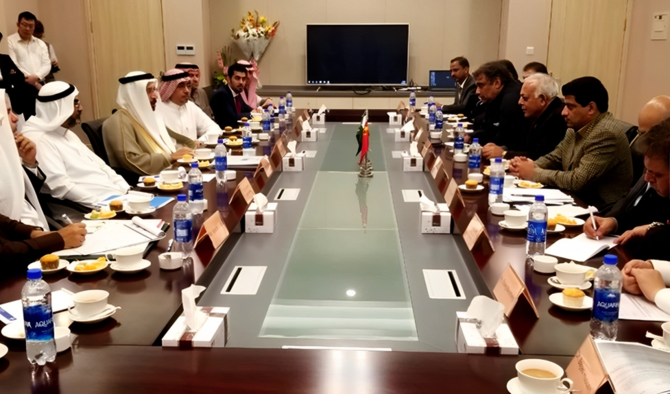ISLAMABAD: State Minister for Petroleum Dr. Musadik Malik said this week a new policy for a $10 billion Saudi oil refinery to be set in Pakistan’s deep-water port of Gwadar, was being deliberated upon by the cabinet and would be finalized in a “couple of weeks.”
The South Asian nation, which is battling a wrenching economic crisis and is in dire need of foreign funds, is seeking to reduce the value of its fuel imports and protect itself from geopolitical shocks. Energy purchases account for most of Pakistan's import bill.
Crown Prince Mohammed bin Salman announced the oil refinery project in 2019 during a visit to Islamabad but it has not materialized mainly since due to feasibility issues, including that the Saudis have suggested a location near Karachi instead of Gwadar in the violence-prone southwestern Balochistan province.
Malik told Arab News in an interview on Wednesday that Pakistan was working “closely” with the Kingdom and delegations of both countries had met multiple times to discuss modalities of the refinery project.
“We have resolved problems around the refinery project,” he said. “We went to Saudi Arabia [for this] and we also met the Saudi team in Abu Dhabi.”
“Right now, the new refinery policy is with the cabinet and in a couple of weeks it will be finalized and we will re-engage with Saudi Arabia … We are really looking forward to it.”
Malik thanked the Kingdom for its continuous support for Pakistan during difficult times.
“Pakistan is receiving a huge amount of oil on deferred payment from Saudi Arabia,” the minister added. “It is about $1.2 billion which is a significant amount … for which we are very grateful.”
“As our needs evolve, we continue to engage with our brotherly country [for more oil on deferred payment] and see how best to move forward,” he added.
Last week, Pakistan said Saudi Arabia had told the International Monetary Fund (IMF) it would provide financing to Pakistan, a critical step needed to secure IMF funding.
Saudi Arabia's $2 billion pledged in external financing support to Pakistan is one of the final conditions for an IMF deal that Islamabad needs to avert a default.
The IMF has asked Pakistan to secure assurances on external financing from friendly countries and multilateral partners to fund its balance of payment gap for this fiscal year, which ends in June.



















